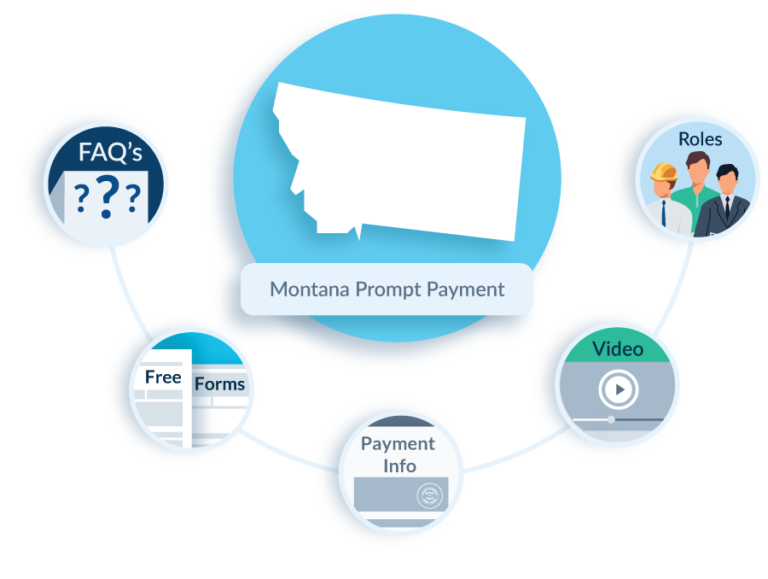Montana Prompt Payment Requirements
- Private Jobs
- Public Jobs
- Top Links
Prime Contractors
For Prime Contractors, generally, payment due monthly - payment due within 7 days of approved invoice, and invoice deemed approved within 21 days of receipt). Can be modified by contract.
Subcontractors
For Subcontractors, payment due 7 days within receipt of payment from above.
Suppliers
For Suppliers, payment due 7 days within receipt of payment from above.
Interest & Fees
Interest at 1.5% month. Attorneys' fees to prevailing party in court; attorneys' fees *may* be awarded pursuant to arbitration.
Prime Contractors
For Prime (General) Contractors, generally, payment due monthly - payment due within 7 days of approved invoice, and invoice deemed approved within 21 days of receipt). Can be modified by contract.
Subcontractors
For Subcontractors, payment due 7 days within receipt of payment from above.
Suppliers
For Suppliers, payment due 7 days within receipt of payment from above.
Interest & Fees
Interest at 1.5% month. Attorneys' fees to prevailing party in court; attorney fees *may* be awarded pursuant to arbitration.
Prompt payment laws are a set of rules that regulate the acceptable amount of time in which payments must be made to contractors and subs. This is to ensure that everyone on a construction project is paid in a timely fashion. These statutes provide a framework for the timing of payments to ensure cash flow and working capital.
Projects Covered by Prompt Payment in Montana
The state of Montana regulates prompt payment on both private and public construction projects. The deadlines and penalties for both types of projects are regulated under the same statutes Mont. Code Ann. §§28-2-2101 et seq. These rules apply to all projects, except residential construction projects of less than $400,000.
Payment Deadlines
Payments on Montana construction projects are structures as monthly payments. Upon receipt of a request for payment, the owner or public entity must make payment within 7 days of the approval of the request. Approval or denial of the request for payment must be done within 21 days of receipt. These deadlines may be modified as long as the contract specifically states an alternate billing cycle.
Penalties for Late Payment
There are certain reasons, outlined in the statute, for withholding payments. However, if none of these circumstances exist, and any payments are late, or otherwise wrongfully withheld, the unpaid balance will begin accruing interest at a rate of 1.5% per month until payment is made. In addition to interest, if the dispute goes to court the prevailing party may be awarded attorney fees, and may be awarded attorney fees in arbitration.

